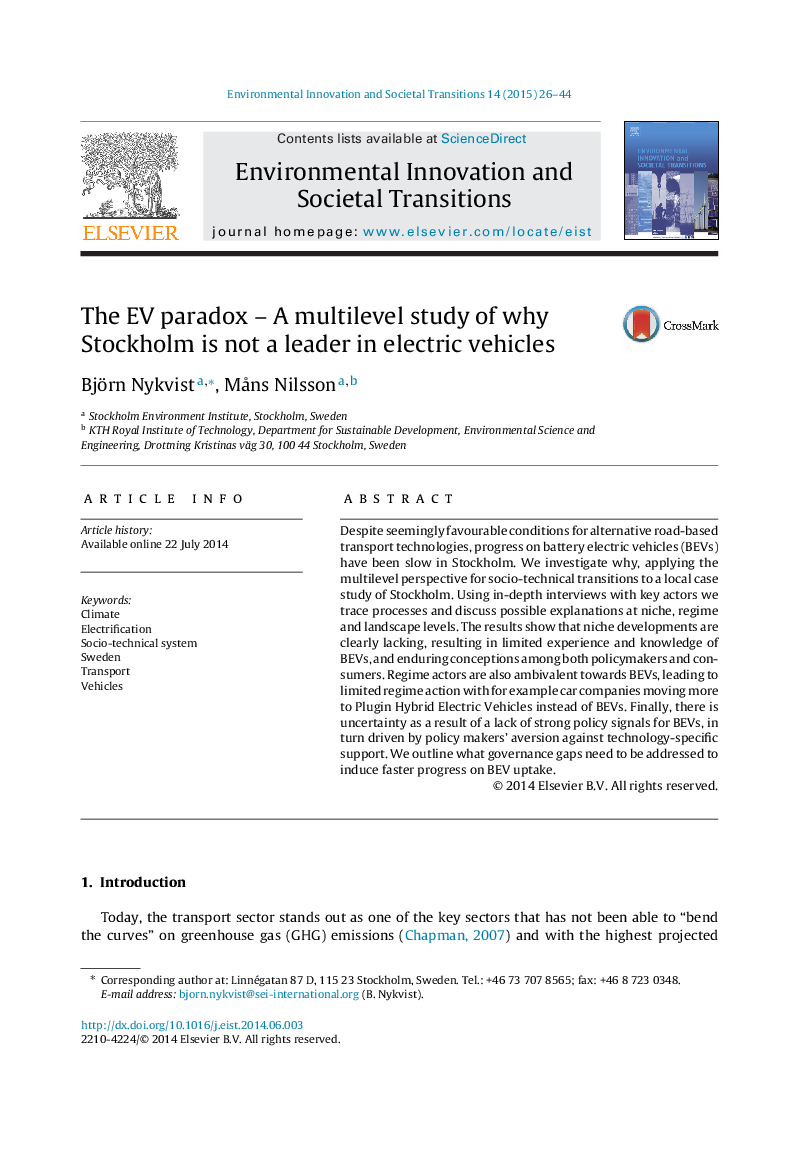| Article ID | Journal | Published Year | Pages | File Type |
|---|---|---|---|---|
| 6559457 | Environmental Innovation and Societal Transitions | 2015 | 19 Pages |
Abstract
Despite seemingly favourable conditions for alternative road-based transport technologies, progress on battery electric vehicles (BEVs) have been slow in Stockholm. We investigate why, applying the multilevel perspective for socio-technical transitions to a local case study of Stockholm. Using in-depth interviews with key actors we trace processes and discuss possible explanations at niche, regime and landscape levels. The results show that niche developments are clearly lacking, resulting in limited experience and knowledge of BEVs, and enduring conceptions among both policymakers and consumers. Regime actors are also ambivalent towards BEVs, leading to limited regime action with for example car companies moving more to Plugin Hybrid Electric Vehicles instead of BEVs. Finally, there is uncertainty as a result of a lack of strong policy signals for BEVs, in turn driven by policy makers' aversion against technology-specific support. We outline what governance gaps need to be addressed to induce faster progress on BEV uptake.
Related Topics
Life Sciences
Environmental Science
Management, Monitoring, Policy and Law
Authors
Björn Nykvist, MÃ¥ns Nilsson,
